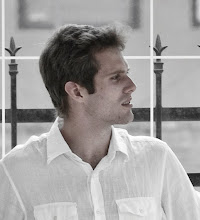
More persistently than the previous three films, Scream 4 poses the question of the damaging affects of viewing (or is it witnessing?) violent content. The Scream series has always been blatantly about the influential power of both viewing and making films. Even the much maligned Scream 3 offers some insightful scenes on studio back lots and soundstages. But Scream 4 takes it even further. Self-reflexive doesn’t begin to describe the film. In one of the best moments, Gail (Cox) refers to something as Meta and when Dewey (Arquette) is befuddled she responds with exasperation, “I don’t know, I heard the kids say it!”
But it’s difficult to draw the line between where Scream 4 indicts the youth of America for being too impressionable and where the film is encouraging the provocation. Take for example the extended death of an on-duty cop: an exquisitely framed single shot and a virtuosic feat of timing. That the shot runs without cutting is evidence of just how savvy director Wes Craven is to anticipating how an audience will react – and it’s all played out for laughs, culminating in a silly line about Bruce Willis. But let’s also not forget a line from one of the (many) opening scenes: “This isn't a comedy, it's a horror film.” Who exactly gets the last laugh has always been ambiguous in this series.
All three sequels have lacked the suspense of the original entry; the trade-off for all the hyper-aware pop culture references being the loss of investment in character and the genuine fear that corresponded. As EW pointed out, the original film had a level of mystery that’s been neutered by all the genre-checking in the sequels.
Still, the opportunity to see Sydney Prescott, Ghost Face, and the town of Woodsboro on the big screen again was a treat. And I leapt at the opportunity to don my Scream 2 t-shirt again. But after the nostalgic delight had worn off, I couldn’t shake the unease and icky feeling that the film relished its depraved violence a bit too ardently. The film’s conclusion is a powerful bit of cynical ideology – if not suspense – but the steps in getting there are less surefooted.














